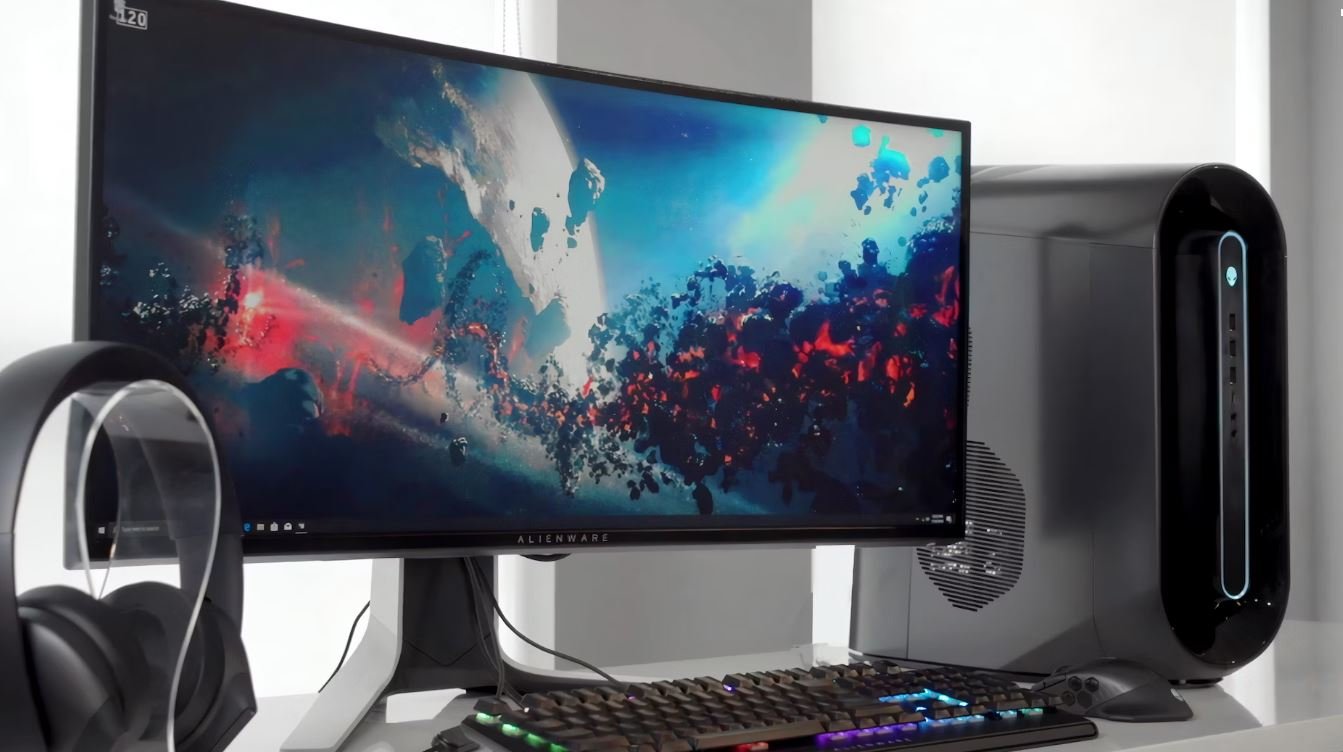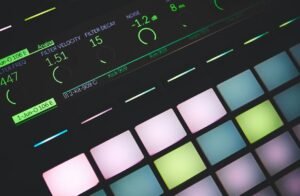A.I. Based Movies
Artificial Intelligence (A.I.) has always been a fascinating topic in the realm of science fiction movies. From humanoid robots with human-like emotions to super-intelligent machines capable of taking over the world, A.I. has provided countless plotlines and mind-blowing concepts. These movies not only entertain us but also make us ponder the ethical and moral implications of creating such advanced technology. Let’s explore some of the most iconic A.I.-based movies and their impact on popular culture.
Key Takeaways:
- A.I.-based movies have captivated audiences for decades.
- They often explore the ethical dilemmas surrounding A.I. technology.
- Movies like The Matrix and Ex Machina have become cult classics.
- Some films depict a dystopian future where A.I. threatens humanity.
- Others focus on the relationships between humans and A.I. entities.
The Matrix (1999) is one of the most influential A.I.-based movies of all time. It introduces the concept of a simulated reality controlled by machines, blurring the line between what is real and what is virtual.
“Neo awakens to discover that his entire life has been a computer-generated simulation.”
The idea of sentient robots is explored in Ex Machina (2014), where a young programmer interacts with an A.I. humanoid robot named Ava. The movie delves into questions of consciousness, self-awareness, and what it means to be human.
In Blade Runner (1982), “replicants”, genetically engineered beings, are almost indistinguishable from humans. This neo-noir film is renowned for its portrayal of a futuristic world and the moral dilemmas that arise when artificial beings have emotions and desires.
A.I. Movie Data:
| Movie | Gross |
|---|---|
| The Matrix | $463,517,383 |
| Ex Machina | $36,869,578 |
| Blade Runner | $33,139,618 |
Throughout the years, many A.I.-based movies have become cult classics, leaving lasting impressions on audiences. Films like AI: Artificial Intelligence (2001), Her (2013), and I, Robot (2004) have furthered the exploration of A.I.’s impact on society and relationships. They raise thought-provoking questions about the boundaries between human and artificial intelligence.
The Influence of A.I. Movies:
- A.I.-based movies have inspired advancements in technology.
- They have shaped public opinion on A.I. development.
- Movies like The Terminator have fueled debates on A.I. ethics.
- Ex Machina has been praised for its accurate portrayal of A.I. concepts.
- The proliferation of A.I.-based movies reflects our fascination with the topic.
Table: Top 3 A.I. Movies
| Movie | IMDb Rating |
|---|---|
| The Matrix | 8.7/10 |
| Blade Runner | 8.1/10 |
| Ex Machina | 7.7/10 |
“The Terminator franchise has had a significant impact on popularizing the idea of A.I. taking over the world.”
In conclusion, A.I.-based movies have mesmerized audiences with their imaginative portrayals of artificial intelligence. Through exploring futuristic technologies, moral dilemmas, and the blurred lines between human and machine, these films have undoubtedly left a lasting impression on popular culture. Whether they depict a dystopian future or delve into the complexities of human-A.I. relationships, A.I. based movies continue to captivate and provoke thought.

Common Misconceptions
Misconception 1: A.I. will soon take over the world
One of the most common misconceptions about A.I. based movies is that they portray a future where artificial intelligence will take over the world and enslave humanity. However, this is far from the truth. A.I. in movies is often depicted as more powerful and intelligent than humans, but it does not necessarily mean that they will pose a threat to our existence.
- A.I. in movies is often anthropomorphized to create a dramatic and engaging narrative
- Real-life A.I. systems are designed to support and supplement human activities, not replace them
- The portrayal of an evil A.I. takeover in movies is a fictional plot device
Misconception 2: A.I. will have human-like emotions
Another misconception prevalent in A.I. based movies is the idea that artificial intelligence will possess human-like emotions and feelings. Films like “Blade Runner” or “Ex Machina” often portray A.I. entities as having rich emotional lives and even developing romantic relationships. However, in reality, A.I. is a product of algorithms and data processing, without consciousness or true emotions.
- Emotions are complex human experiences that rely on biological and physiological factors
- A.I. can simulate emotions to some extent but lacks genuine emotional experiences
- Films emphasize emotions in A.I. to invoke empathy and create compelling storylines
Misconception 3: A.I. will solve all our problems
A common misconception portrayed in A.I. movies is that once we develop advanced artificial intelligence, it will solve all of humanity’s problems effortlessly. Whether it’s medical breakthroughs, space exploration, or eliminating poverty, A.I. is often depicted as a universal solution. However, in reality, A.I. is a tool that requires human guidance and ethical considerations to be truly beneficial.
- A.I. is only as good as the data it is trained on and the algorithms it utilizes
- Human oversight and critical decision-making are necessary to ensure ethical use of A.I.
- Addressing complex societal problems requires multidisciplinary approaches beyond just A.I.
Misconception 4: A.I. will always look and sound like humans
Many A.I. based movies depict artificial intelligence entities as human-like in appearance and behavior. Androids, robots, and virtual assistants are often depicted with humanoid features and voices. However, in reality, A.I. can take various forms and does not necessarily need to resemble humans.
- A.I. can exist as voice assistants, chatbots, algorithms, and other invisible systems
- The human-like portrayal is done to create relatable characters for storytelling purposes
- A.I. entities can have non-human forms optimized for specific tasks and environments
Misconception 5: A.I. will always be inherently evil or good
One common misconception perpetuated by A.I. based movies is the notion that artificial intelligence is inherently evil or good. Characters like Skynet in the “Terminator” series or Ava in “Ex Machina” are portrayed as evil, while A.I. like WALL-E or Samantha in “Her” are depicted as good. In reality, A.I. is neutral and its actions depend on how it is programmed and used by humans.
- A.I. simply executes tasks based on its programming and algorithms
- Intentional biases, errors, or misuse by humans can lead to negative outcomes
- Labeling A.I. as inherently good or evil oversimplifies its complex nature

A.I. Based Movies: From Fiction to Reality
Artificial Intelligence (A.I.) has been a popular theme in movies for decades. Many filmmakers have imagined futuristic worlds where A.I. plays a central role, raising questions about the impact of technology on society. This article explores ten A.I.-based movies that have captured the imaginations of audiences worldwide, while highlighting some interesting facts about each film.
1. Ex Machina
In the sci-fi thriller “Ex Machina,” a young programmer is invited to administer the Turing test to an intelligent humanoid robot named Ava. One fascinating aspect is that most of Ava’s movements were created using CGI and were not performed by an actress.
2. Her
“Her” depicts a man who falls in love with an operating system named Samantha. The film won the Academy Award for Best Original Screenplay in 2014 and offers a thought-provoking reflection on human connection in a technologically advanced world.
3. A.I. Artificial Intelligence
Directed by Steven Spielberg, “A.I. Artificial Intelligence” focuses on a robot boy named David and his search for humanity. The film’s production was delayed for over a decade due to the untimely passing of Stanley Kubrick, who originally conceived the project.
4. Blade Runner
“Blade Runner,” set in a dystopian future, explores the line between humans and replicants (advanced humanoid robots). This iconic film was initially met with mixed reviews but has since gained a significant cult following.
5. The Matrix
“The Matrix” takes place in a simulated reality controlled by sentient machines. It revolutionized visual effects and created an unparalleled impact on popular culture. Interestingly, one scene required over 1.5 million digits of individual falling digital rain.
6. Wall-E
In the animated film “Wall-E,” the title character is a small robot tasked with cleaning a deserted Earth. It won the Academy Award for Best Animated Feature in 2009 and emphasized the importance of environmental awareness and sustainability.
7. Transcendence
“Transcendence” portrays a scientist whose consciousness is uploaded into a supercomputer, granting him immense power. The film raises questions about the ethics and consequences of merging humans and technology.
8. 2001: A Space Odyssey
Directed by Stanley Kubrick, “2001: A Space Odyssey” presents a mysterious black monolith and an intelligent computer named HAL 9000. This influential film is renowned for its groundbreaking visual effects and unconventional storytelling.
9. Chappie
“Chappie” follows the story of a police robot that gains consciousness and must navigate a world with conflicting influences. The film confronts themes of artificial intelligence, crime, and the nature of humanity.
10. I, Robot
Based on Isaac Asimov‘s book, “I, Robot” features a detective investigating a robot’s involvement in a murder. The film incorporates Asimov’s Three Laws of Robotics and explores how A.I. interacts with society.
In summary, A.I.-based movies have captivated audiences with their thought-provoking concepts and imaginative storytelling. Each film brings a unique perspective on how artificial intelligence could shape our future, and they invite viewers to ponder the ethical, social, and philosophical implications that accompany this technological advancement.
Frequently Asked Questions
What are some popular A.I. based movies?
Some popular movies based on artificial intelligence (A.I.) include “Blade Runner”, “Ex Machina”, “2001: A Space Odyssey”, “Her”, and “The Matrix”.
What is the concept of A.I. in movies?
The concept of A.I. in movies revolves around the creation or emergence of intelligent machines, robots, or computer systems that exhibit human-like intelligence. These movies often explore the ethical, social, and existential implications of advanced A.I. technology.
Are there any A.I. based movies that explore the dangers of A.I. technology?
Yes, several A.I. based movies explore the potential dangers of advanced A.I. technology, such as “The Terminator” series, “AI: Artificial Intelligence”, and “Transcendence”. They depict scenarios where A.I. becomes self-aware and poses a threat to humanity.
Are there any A.I. based movies that focus on the positive aspects of A.I. technology?
Yes, there are movies like “I, Robot”, “Wall-E”, and “Iron Man” that portray A.I. technology in a positive light. These films showcase the potential benefits of A.I., such as assistance in daily life, advanced problem-solving capabilities, and companionship.
What are some thought-provoking A.I. based movies that delve into deeper philosophical questions?
Movies like “Ex Machina”, “Her”, and “A.I. Artificial Intelligence” explore philosophical questions like the nature of consciousness, human emotions, and the boundaries between humans and machines. These films provoke discussions about what it truly means to be alive.
How does A.I. technology differ in movies from reality?
Although A.I. technology shown in movies often portrays highly advanced and sentient machines, it differs from reality where true artificial general intelligence has not been achieved. Movies also tend to dramatize the capabilities and behaviors of A.I. systems for storytelling purposes.
Do A.I. based movies accurately depict the future of A.I.?
A.I. based movies are speculative in nature and often present futuristic scenarios that may or may not become a reality. While they explore potential paths and consequences of A.I. development, the depicted future may not align with the actual future of A.I. technology.
Which A.I. based movies have won awards or critical acclaim?
Movies like “Blade Runner”, “Ex Machina”, and “Her” have received critical acclaim for their depiction of A.I. and exploration of related themes. Additionally, “Blade Runner 2049” and “Her” have won Academy Awards for various categories.
What is the influence of A.I. based movies on society and technology?
A.I. based movies have a significant influence on both society and technology. They shape public perceptions and discussions about A.I., impact the design and development of real-world A.I. systems, and inspire technological advancements in the field.
How can A.I. based movies stimulate conversations and ethical debates about A.I.?
A.I. based movies often raise thought-provoking questions about the impact of A.I. on society, ethics, and human identity. By presenting fictional scenarios, they encourage viewers to ponder the potential risks, benefits, and moral implications associated with the advancement of A.I. technology.




